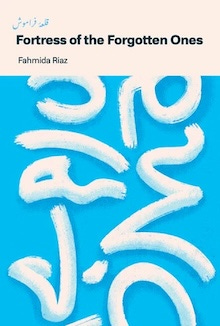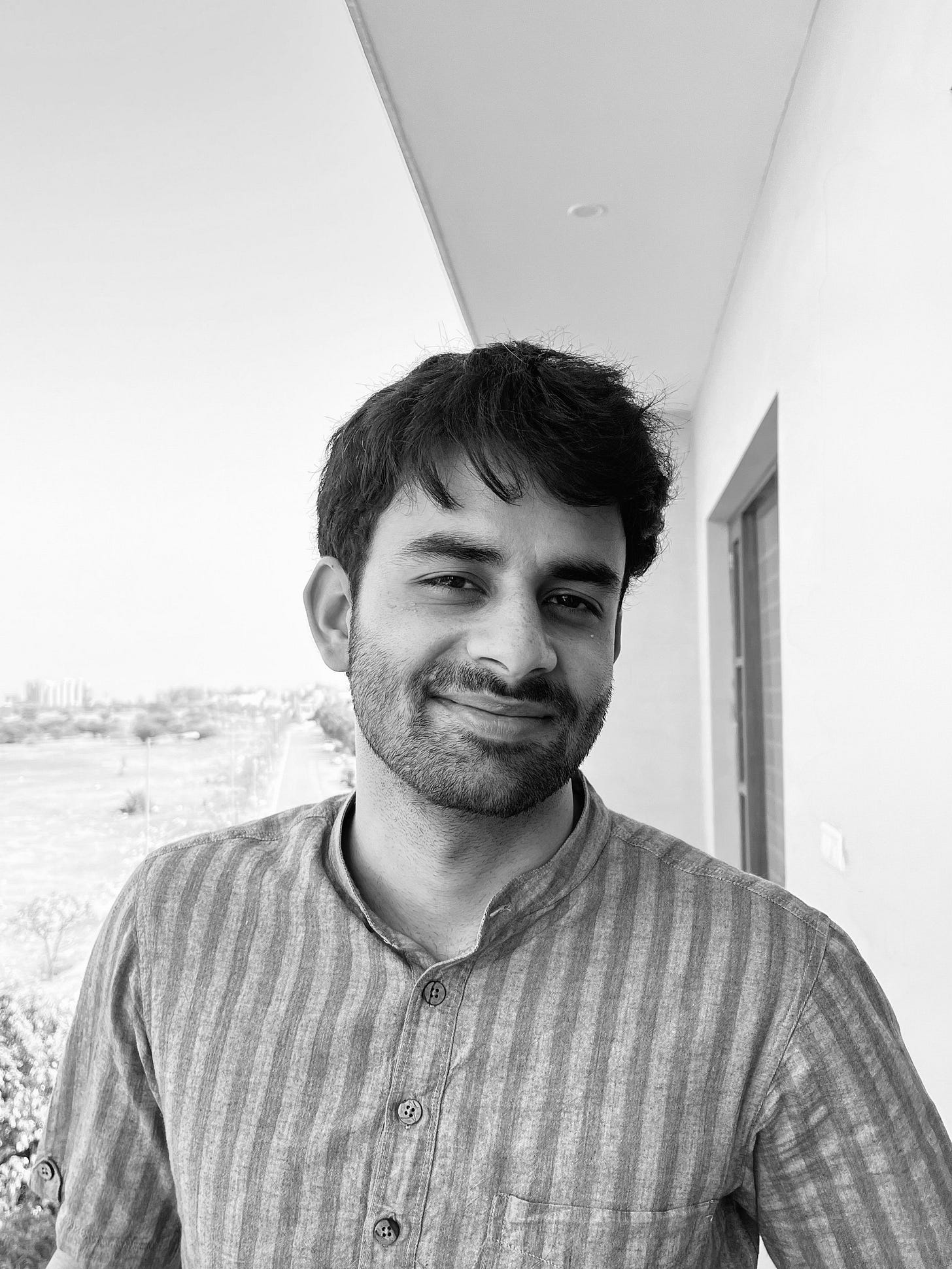Kashmiri Novel Wins 2025 Armory Square Prize for South Asian Literature in Translation
Mehdi Khawaja's winning translation will be the first Kashmiri novel to be published in the U.S.
A couple years ago, Open Letter partnered with Armory Square Ventures to bring more works from South Asia to the U.S. via an annual competition in which a distinguished set of judges select a work from dozens of titles submitted by translators from any South Asian language.
The first title to come out thanks to this award is Fortress of the Forgotten Ones by Fahmida Riaz & Sana Chaudry, which will officially release in March 2026.
This year’s winner, which will release in March 2027, is, to the best of our knowledge, the first Kashmiri novel to be translated into English and published in the U.S.: To Each Their Own Hell by Akhtar Mohiuddin & Mehdi Khawaja. (Note: Archipelago brought out a Kashmiri collection of short stories last year, For Now, It Is Night: Stories by Hari Krishna Kaul & Gowhar Fazili, Gowhar Yaquoob, Kalpana Raina, and Tanveer Ajsi.) According to juror Daisy Rockwell (winner of the International Booker for Tomb of Sand, the next book featured in the Two Month Review):
The 1975 Kashmiri novel To Each Their Own Hell by Akhtar Mohiuddin (1928–2001) is a taut, compelling meditation on love, and its absence, populated by mysterious characters with names like X and Sheen and Daisy and Nancy. In Mehdi Khwaja’s compelling translation, the propulsive voice of the narrative immediately grabs the reader’s attention and won’t let go. To Each Their Own Hell is utterly unique and evokes both the nihilism of No Exit or Madame Bovary and the ambiance of a noir thriller.
In terms of the winning translator, Mehdi Khawaja, is a freelance journalist and editor who has also taught courses on Kashmiri language and literature at Ashoka University, and is a traditional craftsman.
He’s also the author of “The People’s Voice: How Kashmiris Are Resisting Linguistic Exclusion” in The Caravan:
It is a universally acknowledged fact that the occupation of a country by a powerful nation begins with control over peoples’ culture and language—the core elements of their identity. In Kashmir, India has left the people bereft of their own language, but natives of the occupied land are indifferent and a cultural uprising seems far away. When I asked Zareef where he sees the language today, he said, “In recent years, we have seen our youth abandoning the Kashmiri language. Kashmiri was properly taught in schools until 1953, the year Bakshi Ghulam Mohammad, who worked in favour of the Indian government in Delhi, became prime minister of the state.” The reason behind the language’s disappearance, he added, “was that Master Tara Singh was demanding a separate state based on the Punjabi-speaking population, and the Congress government was scared that if the language blooms in a state stitched to India against the will of its people, a similar demand for freedom rooted in cultural sentiments and a common language would take birth there.” [. . .]
The Kashmiri language has produced some exceptional literature and writers. Rasul Mir, one of the leading Kashmiri poets of the nineteenth century, is popularly called the John Keats of Kashmir. Mahmud Gami’s Yusuf Zulaikha was translated into German in the nineteenth century. The rich corpus of Kashmiri literature deals with every aspect of life—from romantic poetry to existential prose. But this literature is not easily accessible, or read by many.
Last year, I met Azhar Hilal, the son of the prolific Kashmiri novelist and short-story writer Akhtar Mohiuddin, who died in 2001. Akhtar wrote the first ever novel in Kashmiri, Dod Dag—Disease and Pain. In 1968, he was awarded the Padma Shri—India’s fourth-highest civilian honour—which he returned in protest against the hanging of the separatist leader Maqbool Bhat, inside Delhi’s Tihar jail in 1984. “Some of the most important works by my father are still unpublished,” Hilal told me. “They are locked in the safe.”
All publishing is political, but this feels particularly so, especially given the recent outbreak of violence in Kashmir. And Akhtar Mohiuddin definitely seems like a great place to start in providing English readers with insight into the region’s culture.
Although the full novel won’t be available for a hot minute, you will be able to read a sample—along with the other finalists and the “special jury mention”—on Words Without Borders starting later this year (stay tuned for updates).
Here’s the full list of finalists (in alphabetical order):
The Modern Tales of a Golden Country by Manoj Kumar Pandey (Hindi);
Translated by Punarvasu Joshi (Short story collection, 2020)Grandmothers, Granddaughters and Other Women by Kumudu Kumarasinghe (Sinhala);
Translated by Ciara Mendis (Short story collection, 2024)Moumin (or The Believer and Other Stories) by Shobasakthi (Tamil);
Translated by Sumathy Sivamohan (Collected stories, 1997-2024)WINNER: To Each Their Own Hell by Akhtar Mohiuddin (Kashmiri);
Translated by Mehdi Khawaja (Novel, 1975)
SPECIAL JURY MENTION: Saigon Puducherry by Nagarathinam Krishna (Tamil),
Translated by Subhashree Beeman (Novel, 2022)
From the press release, here’s a bit more information about the award and this year’s iteration:
Medhi Khawaja is one among a diverse pool of finalists. Selected from a rich and eclectic array of entries, this year’s shortlisted translators are especially vigorous. Their narratives, set both in South Asia and parts of Western Europe, reflect the increasingly hybrid, conflicted and multifarious ideas that haunt and inform much of South Asian-inspired literature in languages both from the region and beyond. The work is also especially global and varies in style and construction. The translators in this year’s pool demonstrate, through their industry, how contradictory the forces they navigate can be, from one day to the next. Some occupy fraught political spaces or inhabit isolated, narrow worlds. Each entry on this year’s shortlist also lives vitally in conversation with other literary traditions. The Armory Square award is presented annually and aims to cultivate a new generation of literary translators working with South Asian languages.
Five entries were selected as finalists this year to recognize the breadth, linguistic complexity and robust modern literature of South Asia. As part of that mission, the jury recognized a second entry, Saigon Puducherry, translated from Tamil by Subhashree Beeman, as noteworthy, and selected it for a Special Jury Mention. Sponsored by Armory Square Ventures, the groundbreaking translation prize is the first of its kind worldwide.
The winner was announced on June 16, 2025, during an event co-hosted with Himal Southasian’s annual Fiction Fest. The livestreamed panel discussion featured readings from the five finalists, remarks from jury chair Jason Grunebaum and Armory Square Ventures Cofounder Pia Sawhney, and the live announcement of the 2025 prize winner.
Last year’s winning entry, Fortress of the Forgotten Ones, translated from the Urdu by Sana Chaudhry, and written by Pakistani author, Fahmida Riaz, will soon be available for purchase from Open Letter Books. Follow that title here on the publisher’s website.
Launched in July of 2022, the Armory Square Prize is an effort to remedy the stark disparities in literary translation worldwide and support compelling storytellers from the Indian Subcontinent by raising their visibility in the US. Of the nearly 7,600 books published in translation in the United States over the past decade, only 64, or fewer than 1%, originated from a South Asian language, even though these languages are spoken by a full one-fifth of the world’s population.
About Armory Square Ventures in Skaneateles, New York
Armory Square Ventures (ASV) is a mission-focused technology venture capital firm that strives to be a community catalyst in the regions where we operate. The firm aims to identify innovators today that will lead us toward a brighter, more humane tomorrow. As such, ASV is an optimism engine for ecosystems outside of Silicon Valley, supporting B2B, AI and tech-enabled software startups to source talent, resources and capital. Our focus lies in places overlooked by other investors. For more about the prize or finalists, contact Shreyas Shende at shreyas@armorysv.com
Stay tuned for information on how to preorder To Each Their Own Hell, but in the meantime, you can support this project by preordering Fortress of the Forgotten Ones (which I’ll be editing over the next few weeks, and will have a galley ready by the end of the summer).






